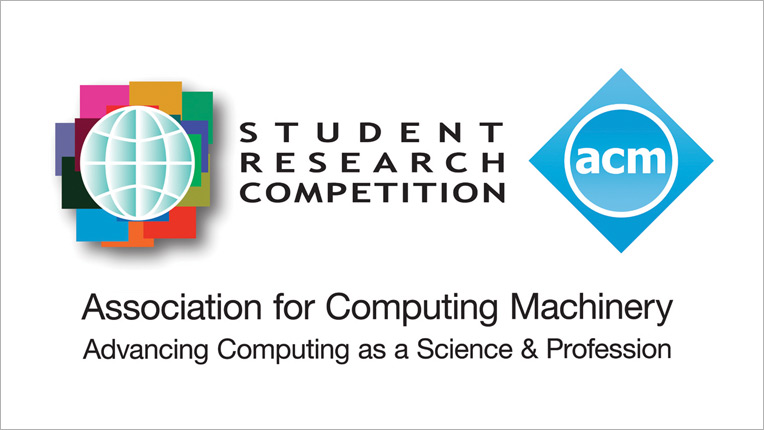SRC Grand Finalists 2017
GRADUATE CATEGORY
First Place:
Kazem Cheshmi - Rutgers University
CGO 2017
Title of Submission: Decoupling Symbolic from Numeric in Sparse Matrix Computations
Second Place:
Omid Abari - MIT
MobiCom 2016
Title of Submission: Cutting the Cord in Virtual Reality
Third Place:
Calvin Loncaric - University of Washington
FSE 2016
Title of Submission: Cozy: Synthesizing Collection Data Structures
UNDERGRADUATE CATEGORY
First Place:
Victon Lanvin - ENS Paris Saclay
POPL 2017
Title of Submission: Gradual Set-Theoretic Types
Second Place:
Jennifer Vaccaro - Olin College of Engineering
ICCAD 2016
Title of Submission: Applying Computer Modeling to Post-Silicon Electrical Validation
Third Place:
Martin Kellogg - University of Washington
FSE 2016
Title of Submission: Combining Bug Detection and Test Case Generation
ACM Student Research Competition
The ACM Student Research Competition is an internationally recognized venue enabling undergraduate and graduate students to experience the research world, share research results and exchange ideas, rub shoulders with academic and industry luminaries, understand the practical applications of their research and gain recognition.

Graduate Category: First Place
Kazem Cheshmi, Rutgers University
"Decoupling Symbolic from Numeric in Sparse Matrix Computations" (CGO 2017)
Sympiler is a domain-speci c code generator that optimizes sparse matrix computations by decoupling the symbolic analysis phase from the numerical manipulation stage in sparse codes. The computation patterns in sparse numerical methods are guided by the input sparsity structure and the sparse algorithm itself.... [Read more]

Graduate Category: Second Place
Omid Abari, Massachusetts Institute of Technology
"Cutting the Cord in Virtual Reality" (MobiCom 2016)
Today’s virtual reality (VR) headsets require a cable connection to a PC or game console. This cable significantly limits the player’s mobility and hence her VR experience... [Read more]

Graduate Category: Third Place
Calvin Loncaric, University of Washington
"Cozy: Synthesizing Collection Data Structures" (FSE 2016)
Many applications require specialized data structures not found in standard libraries. Implementing new data structures is tedious and error-prone. To alleviate this difficulty, we built a tool that does so automatically: it synthesizes efficient data structures from short, simple, declarative specifications.... [Read more]

Undergraduate Category: First Place
Victor Lanvin, ENS Paris Saclay
"Gradual Set-Theoretic Types" (POPL 2017)
A static type system can be an extremely powerful tool for a programmer, providing early error detection, and offering strong compile-time guarantees on the behavior of a program. However, compared to dynamic typing, static typ- ing often comes at the expense of development speed and flexibility, as statically-typed code might be more difficult to adapt to changing requirements. Gradual typing is a recent and promising approach that tries to get the best of both worlds [16].... [Read more]

Undergraduate Category: Second Place
Jennifer Vaccaro, Olin College of Engineering
"Applying Computer Modeling to Post-Silicon Electrical Validation" (ICCAD 2016)
Because the post-silicon validation process requires a high amount of effort from engineers, we propose the use of a variety of modeling techniques to tune the silicon. Black-box models interpolate measured physical data (Kriging), while white-box models generate simplified simulation data with some correlation to the physical data. .... [Read more]

Undergraduate Category: Third Place
Martin Kellogg, University of Washington
"Combining Bug Detection and Test Case Generation" (FSE 2016)
Detecting bugs in software is an important software engineering activity. Static bug finding tools can assist in detecting bugs automatically, but they suffer from high false positive rates. .... [Read more]
